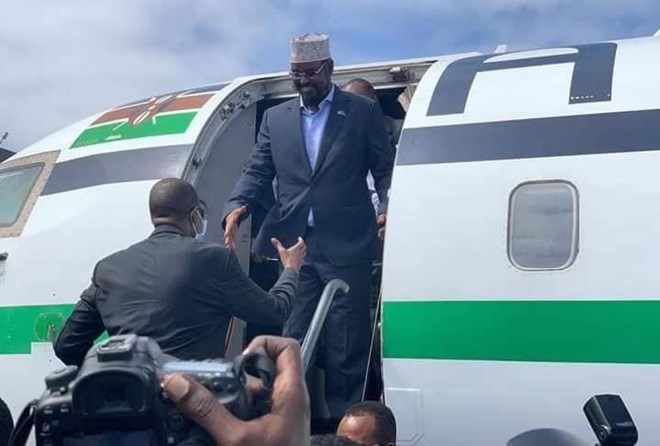Friday September 4, 2020
By Aman Obsiye

Introduction
The Somali state faces many existential threats, but one particular threat that is gravely affecting Somalia’s sovereignty is Kenya’s ignominious policy of African Imperialism. Merriam-Webster Dictionary defines imperialism as: “the policy, practice, or advocacy of extending the power and dominion of a nation especially by direct territorial acquisitions or by gaining indirect control over the political or economic life of other areas.”
Traditionally, when one hears the word imperialism, European nations come to mind, but we are currently witnessing the advent of African Imperialism in far-southern Somalia. This short essay shall highlight the existential threat Kenya poses to Somalia via its “Jubaland Initiative.”
Kenya’s Jubaland Initiative
On October 16th 2011, Kenya unilaterally invaded far-southern Somalia (Jubaland), violated her sovereignty and broke international law. Somalia’s then President, Sheikh Sharif Ahmed, publicly stated that: “The Somali government and its people will not be pleased with Kenya’s intervention. We had no agreement with Kenya ... ” Fast forward to 2020, and the Somali government and its people are still not pleased. Kenya’s illegal invasion of Jubaland was not random. It was a well thought out policy of African Imperialism, whose goal was to have indirect control over the political or economic life of a vital part of Somalia.
What Wetangula did not tell the diplomat was that Kenya’s Jubaland Initiative was part of its policy to diminish Somalia’s sovereignty, dismember its territorial integrity, steal its natural resources and annex its maritime border. To accomplish these goals, Kenya needed a Somali face for its Jubaland Initiative. They found a loyal partner in the former high-ranking terrorist, Ahmed Madobe.
The Threats
First, how can Kenya honestly say it is seeking to defeat Al-Shabaab when its troops are aiding in the illegal charcoal trade of far-southern Somalia? The charcoal trade is Al-Shabaab’s primary source of revenue, and a confidential U.N. report has implicated Kenyan soldiers in the illicit trade. Second, Kenya is seeking to build a 700-kilometre-long border wall inside Jubaland. The FGS has vehemently opposed the wall as a violation of Somalia’s territorial integrity, but Kenya has continued with the construction. Third, the indigenous clans of Jubaland, which collectively are the majority population, have been marginalized.
Lastly, and most consequential, Kenya is seeking to annex 62,000-square-miles of Somalia’s territorial waters, which are located in Jubaland and are rich in off-shore oil and gas deposits. Somalia and Kenya have never had a maritime border dispute since both gained independence in the early 1960s. But after Kenya formulated its Jubaland Initiative and invaded far-southern Somalia in 2011, it began the process of annexing Somalia’s territorial waters of Jubaland.
In August 2014, Somalia’s then-president, Hassan Sheikh Mohamud, instituted proceedings against Kenya in the International Court of Justice (ICJ) regarding “a dispute concerning maritime delimitation in the Indian Ocean.” Somalia’s current president, Mohamed Abdullahi Farmaajo, has continued with these proceedings but Kenya has requested postponement after postponement, which the ICJ has granted. Kenya’s strategy is to continuously seek postponement until Villa Somalia is occupied by one of its stooges who will sign a binding treaty officially relinquishing Somalia’s claim to its waters in Jubaland.
Conclusion
Cicero once famously said that “A nation can survive its fools and even the ambitious. But it cannot survive treason from within.” The Somali people, especially the leaders in the federal executive and legislative branches, must use all the tools at their disposal to repel Kenya’s ignominious policy of African Imperialism. They must safeguard Somalia’s sovereignty by demanding the complete and unconditional withdrawal of Kenyan troops from Somali territory. Additionally, Somalia’s international partners must cease turning a blind eye to Kenya’s numerous violations of international law and its egregious transgressions against Somalia.
Aman Obsiye is an Attorney based in Minneapolis, MN. He received his Juris Doctor and Master of Public Policy from the University of Minnesota.